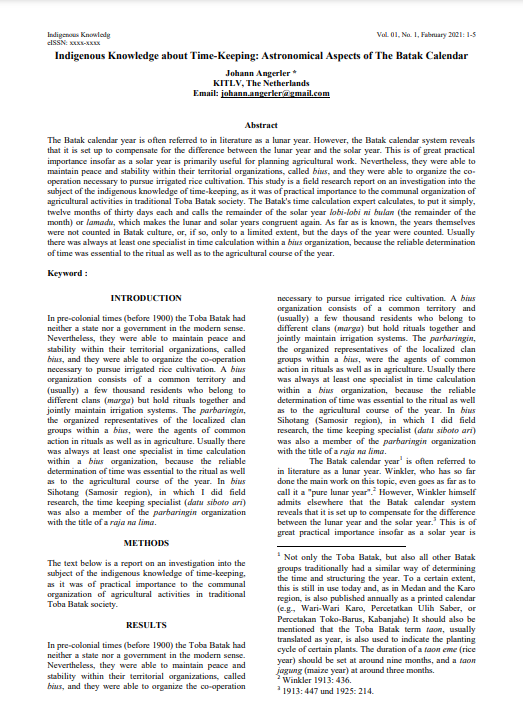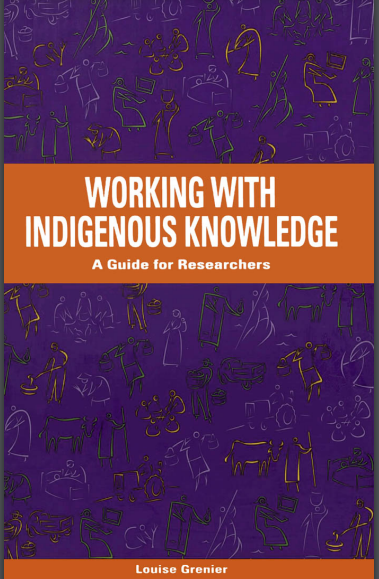
Indigenous Knowledge about Time-Keeping: Astronomical Aspects of The Batak Calendar
Publication Year: 2021
Author(s): Angerler J
Abstract:
The Batak calendar year is often referred to in literature as a lunar year. However, the Batak calendar system reveals that it is set up to compensate for the difference between the lunar year and the solar year. This is of great practical importance insofar as a solar year is primarily useful for planning agricultural work. Nevertheless, they were able to maintain peace and stability within their territorial organizations, called bius , and they were able to organize the co-operation necessary to pursue irrigated rice cultivation.The Batak's time calculation expert calculates, to put it simply, twelve months of thirty days each and calls the remainder of the solar year lobi-lobi ni bulan (the remainder of the month) or lamadu, which makes the lunar and solar years congruent again. As far as is known, the years themselves were not counted in Batak culture, or, if so, only to a limited extent, but the days of the year were counted. Usually there was always at least one specialist in time calculation within a bius organization, because the reliable determination of time was essential to the ritual as well as to the agricultural course of the year.
Source of Publication: Indigenous Knowledge
Vol/Issue: 01 (1), 1-5pp.
ISSN: 2776-3692
Country: Indonesia
Publisher/Organisation: Unpad Press
URL:
https://jurnal.unpad.ac.id/ik/article/view/32627/15164
Theme: Traditional/ Indigenous Knowledge | Subtheme: Cultural Knowledge
Related Documents
Books

Communities, Conservation and Livelihoods
Published Year: 2021
Abstract:
In most places around the world, people are an integral, sometimes dominant, part of the&... Read More
Training Materials
Abstract:
This guide aims to help countries in transition decide whether and how best to protect traditi... Read More
Training Materials

Working with Indigenous Knowledge: A Guide for Researchers
Published Year: 1998
Abstract:
For the purpose of this guidebook, indigenous knowledge (IK) refers to the unique, traditional... Read More



